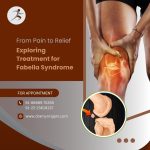Avascular Necrosis (AVN) of the hip, also known as osteonecrosis, is a condition where the blood supply to the femoral head (the "ball" of the hip joint) is compromised, leading to bone cell death. This condition can result in severe pain, limited mobility, and ultimately, joint destruction if left untreated. Early detection of AVN is crucial to prevent irreversible damage and preserve hip function. In this article, we delve into what AVN is, its causes and risk factors, symptoms, and the importance of early detection.
What is Avascular Necrosis?
Avascular necrosis occurs when there is a disruption in the blood supply to the bone, leading to bone tissue death. In the case of the hip, AVN affects the femoral head, which is the rounded end of the femur that fits into the hip socket. Without an adequate blood supply, the bone tissue becomes weak and collapses, resulting in pain and joint dysfunction. AVN typically progresses over time and can eventually lead to severe arthritis if not treated promptly.
Causes and Risk Factors for Avascular Necrosis
Several factors can contribute to the development of AVN, including:
- Trauma: Hip dislocation, fractures, or other injuries can damage blood vessels supplying the femoral head, leading to AVN.
- Steroid Use: Long-term or high-dose steroid use can disrupt blood flow to the bones, increasing the risk of AVN.
- Alcohol Abuse: Excessive alcohol consumption can weaken bones and impair blood circulation, predisposing individuals to AVN.
- Medical Conditions: Certain medical conditions such as sickle cell disease, lupus, and HIV/AIDS can interfere with blood flow, increasing the likelihood of AVN.
- Joint Disorders: Conditions like rheumatoid arthritis or systemic lupus erythematosus can also contribute to AVN development.
- Radiation Therapy: Radiation treatment for cancer can damage blood vessels, leading to AVN in some cases.
Symptoms of AVN
The symptoms of AVN can vary depending on the stage of the condition. In the early stages, patients may experience:
- Hip Pain: Dull or aching pain in the hip or groin area, which may worsen with activity and improve with rest.
- Stiffness: Difficulty moving the hip joint, particularly after periods of inactivity.
- Limping: A noticeable change in gait or limping while walking.
- Limited Range of Motion: Difficulty bending or rotating the hip joint.
As AVN progresses, symptoms may worsen, and individuals may experience increased pain, decreased mobility, and eventually, joint collapse.
Why Early Detection is Necessary with AVN
Early detection of AVN is crucial for several reasons:
- Preservation of Hip Function: Prompt diagnosis allows for early intervention, which can help preserve hip function and prevent further joint damage. Treatment options are more effective in the early stages of AVN before significant bone collapse occurs.
- Pain Management: Early detection enables healthcare providers to initiate pain management strategies to alleviate discomfort and improve the patient's quality of life.
- Prevention of Complications: Left untreated, AVN can progress to advanced stages, leading to severe arthritis, joint deformity, and disability. Early intervention can help prevent these complications.
- Conservative Treatment Options: In the early stages of AVN, conservative treatments such as medication, physical therapy, and lifestyle modifications may be sufficient to manage symptoms and slow disease progression. However, these options are most effective when initiated early.
- Surgical Intervention: If AVN progresses despite conservative measures, surgical intervention may be necessary to preserve hip function. Early detection increases the likelihood of successful surgical outcomes and reduces the need for more extensive procedures such as total hip replacement surgery.
For individuals in Mumbai, seeking early detection and treatment for AVN, consulting with a qualified hip replacement surgeon is essential. Dr. Amyn Rajani, a renowned orthopedic surgeon specializing in hip preservation and total hip replacement surgery in Mumbai, offers expertise in diagnosing and treating AVN. Dr. Rajani utilizes advanced imaging techniques and minimally invasive surgical approaches to provide personalized care for patients with hip conditions, including AVN.
In conclusion, early detection of Avascular Necrosis (AVN) of the hip is imperative for preserving hip function, managing symptoms, and preventing complications. Patients experiencing hip pain, stiffness, or limited mobility should seek prompt medical evaluation, particularly if they have risk factors such as trauma, steroid use, or underlying medical conditions. With timely intervention and expert care, individuals with AVN can achieve better outcomes and maintain an active lifestyle.
To schedule an appointment, call on Clinic Number: 91-88989 75355 / 91-22-23619137




